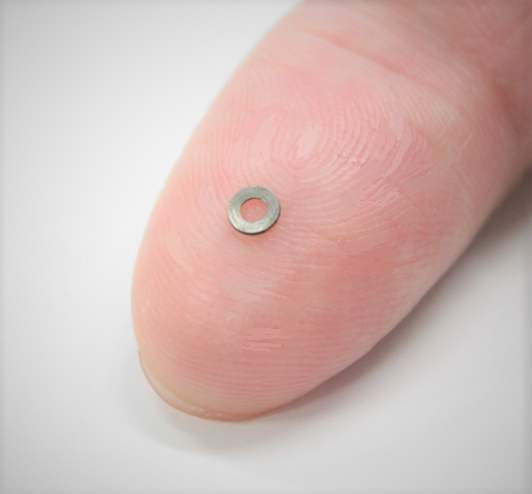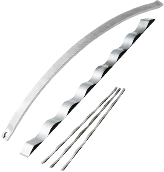Industries & Applications
Examples of Where Our Springs Have Been used By utilizing our spring manufacturing technology that we have nurtured over the years,
we have solved a whole host of spring-related issues in various fields.
- Tokai Spring HOME
- Industries & Applications
- A few millimeters in diameter and operating accurately even in outer space at a temperature of -273℃!
A few millimeters in diameter and operating accurately even in outer space at a temperature of -273℃!
Client Data
Research organization
Use Spring:Disc spring
Period:3 months
Ultra-small disc springs used in far infrared detectors
Examples of Tokai Spring achievements
Tokai Spring Industries possesses unique manufacturing technology based on many years of experience of delivering products to customers in the aerospace and research industries. Our springs are used to control loads in outer space and other harsh environments, and in applications that require compact sizes and large loads designed to be installed on satellites.
Problems and challenges
We received a request to design a disc spring to be used in a far-infrared detector mounted on an artificial satellite or a scientific observation balloon. It was planned to use a disc spring to pressurize an element made of a certain material, and the request was for the outer diameter of the spring to be less than 3mm (extremely small for a spring). In addition, since it is used in space and at extremely low temperatures, the operating temperature is extremely low at absolute zero (-273℃). (Although there has been talk of temperatures about -100℃, but initially it was -273℃.) The load characteristics were 200N, and although deflection was not specified, the number of combinations was about 30.
Solution
 As for the material, we considered materials with excellent cryogenic characteristics, and selected INCONELX750 because it can be used down to absolute zero (-273℃) and it was used a lot in disc springs. Of course, due to the extremely small size of the spring, the manufacturing method was also carefully considered.
As for the material, we considered materials with excellent cryogenic characteristics, and selected INCONELX750 because it can be used down to absolute zero (-273℃) and it was used a lot in disc springs. Of course, due to the extremely small size of the spring, the manufacturing method was also carefully considered.
Results
Although the dimensions of the springs were extremely small and the springs were extremely difficult to manufacture, the springs were completed and delivered according to the proposed specifications. The dish spring was attached to a far-infrared detector and is still active in space. Our products, which demonstrate stable performance even at extremely low temperatures, are expected to continue to play an active role in the field of space development.

















